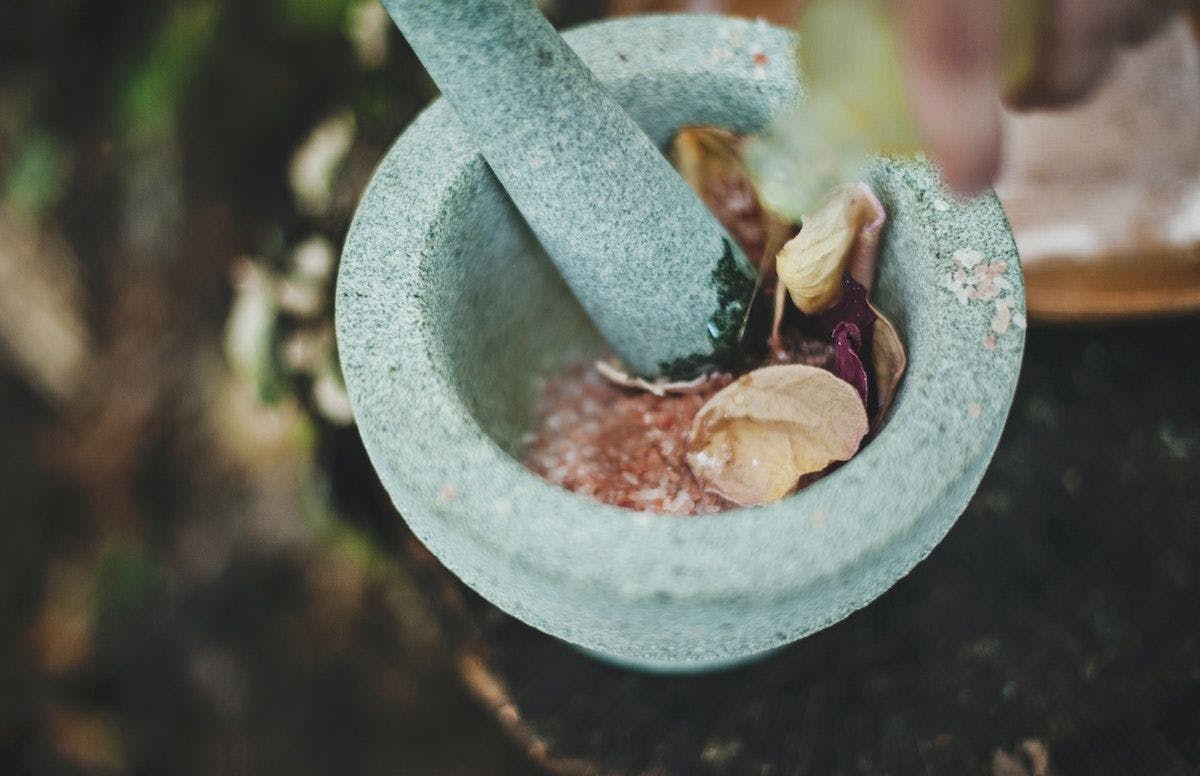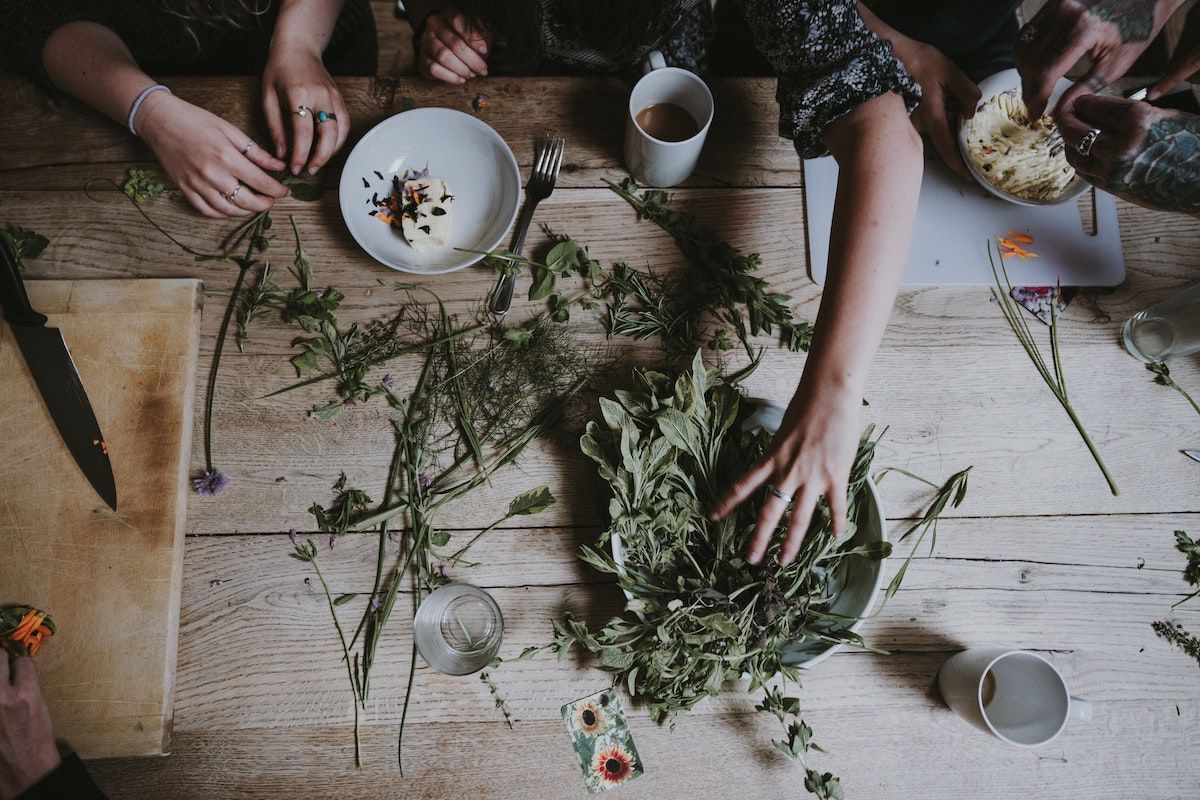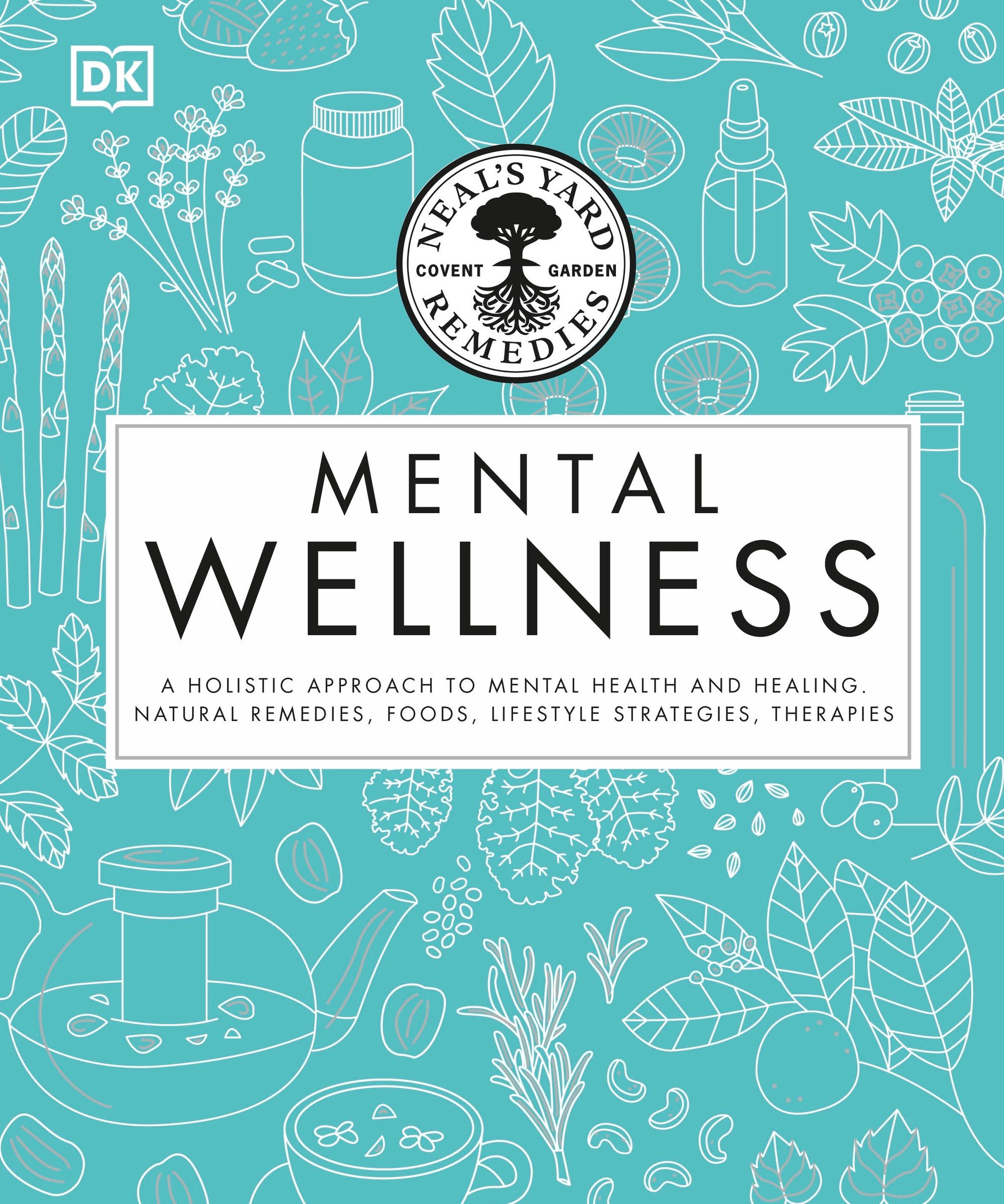
Herbs have been used in medicine for many years, and their powers are only becoming more recognised in the Western world. From infusions to decoctions and tinctures, there are many ways to introduce herbs into our daily lives.
Plants and mushrooms have been used traditionally in many cultures for their healing qualities. Herbalists have been learning about their unique qualities for millennia, using the slow art of herbal lore, involving thorough observation of plants and people, to form a robust knowledge of herbs. Today, scientific research, scrutiny, and clinical trials have uncovered increasing evidence to verify this ancient knowledge.
How do herbs work?
Plants contain various chemicals, or compounds, with a range of medicinal properties. These can be similar across different plants but tend to be in a certain composition within a species. For example, many aromatic plants, such as lemon balm, have the component geraniol, giving them a sweet, citrus smell and calming properties. However, in each plant, geraniol is part of a unique blend of components, like a single note in a perfume, giving it an individual character in that species.
This is why herbalists work with the whole plant rather than singling out an ingredient, harnessing the naturally occurring synergy of components, then carefully blending plants into more complex remedies.
5 types of herbs for mental wellness
Herbalists take a holistic approach to remedies. Herbal blends are chosen that have been found to work on systems in synergy, using a range of actions to finely balance body, mind, emotions, and spirit. Each herb also has more than one action, making it useful for a range of conditions.

Adaptogenic herbs
Adaptogenic herbs, such as Siberian and Korean ginseng, ashwagandha, Rhodiola, Reishi, Schisandra, and holy basil help the body adapt to external or internal stressors. They restore vitality by working on the physiological processes of energy production and cell regeneration in the body.
Adaptogenic herbs are held sacred in Ayurvedic tradition, where they are considered “Rasayana”, or rejuvenating. In Chinese traditions, they are thought of as energy tonics, helping the flow of chi - or energy - through the body. Adaptogens should be used sparingly for a short period of time to support a person at times of transition, such as during major life events or convalescence, or during a period of excessive stress.
Read 'How to use adaptogenic herbs for stress' on Nutritionist Resource.
Antioxidants
Antioxidants improve cellular metabolism by reducing oxidative damage to cells so they work more efficiently, experience less wear and tear, and maintain vitality. Antioxidants play an important role in repairing damage from chronic inflammation. The effects of stress and systemic inflammation are very visible in the circulatory system, causing symptoms such as high blood pressure. Inflammation in the brain is harder to detect because there are no pain receptors to warn us, but signs such as “brain fog” and forgetfulness indicate chronic low-grade inflammation.
Medicinal antioxidant plants include cocoa, rosemary, ginkgo, hawthorn, hibiscus, saffron, and turmeric.
Antispasmodic
Antispasmodic qualities in herbs such as California poppy, chamomile, lime flower, lemon balm and mint, relax muscles and relieve tension. A state of tension, or unease, can be a hallmark of generalised anxiety disorder. These herbs help relax body and mind, ease headaches and stomach pain, and support a healthy gut-brain axis.
Anxiolytic

An anxiolytic, or anti-anxiety, action is present in many relaxing herbs, stemming primarily from their capability to reduce our “fight-or-flight” response and either increase the quantity or prolong the action of certain calming neurotransmitters. Key anxiolytic herbs are chamomile, lime flower, lemon balm, mint, motherwort, passionflower, and valerian.
Aphrodisiacal herbs
Aphrodisiacal herbs, such as ashwagandha, cocoa, damiana, Korean ginseng, and Shatavari, help to promote libido, which plays a key role in relationships and sexual wellbeing, essential aspects of life.
A healthy libido reflects a well-functioning hormonal system as our reproductive hormones are directly linked with stress hormones via feedback mechanisms. When someone is under stress, the body reduces reproductive impulses, in turn creating tension and anxiety, which affect libido. Conversely, endorphins that are released during pleasurable moments have a positive effect on wellbeing.
This is an extract from Neal’s Yard Remedies Mental Wellness. Neal’s Yard Remedies Mental Wellness (published by DK, £18.99) is an expertly curated collection of the natural and therapeutic resources that are proven to be effective for mental wellness.
The Neal's Yard Remedies collection, including Mental Wellness, Complete Wellness and Complete Massage is available now online and in bookstores.
Read more about herbalism on Therapy Directory.

